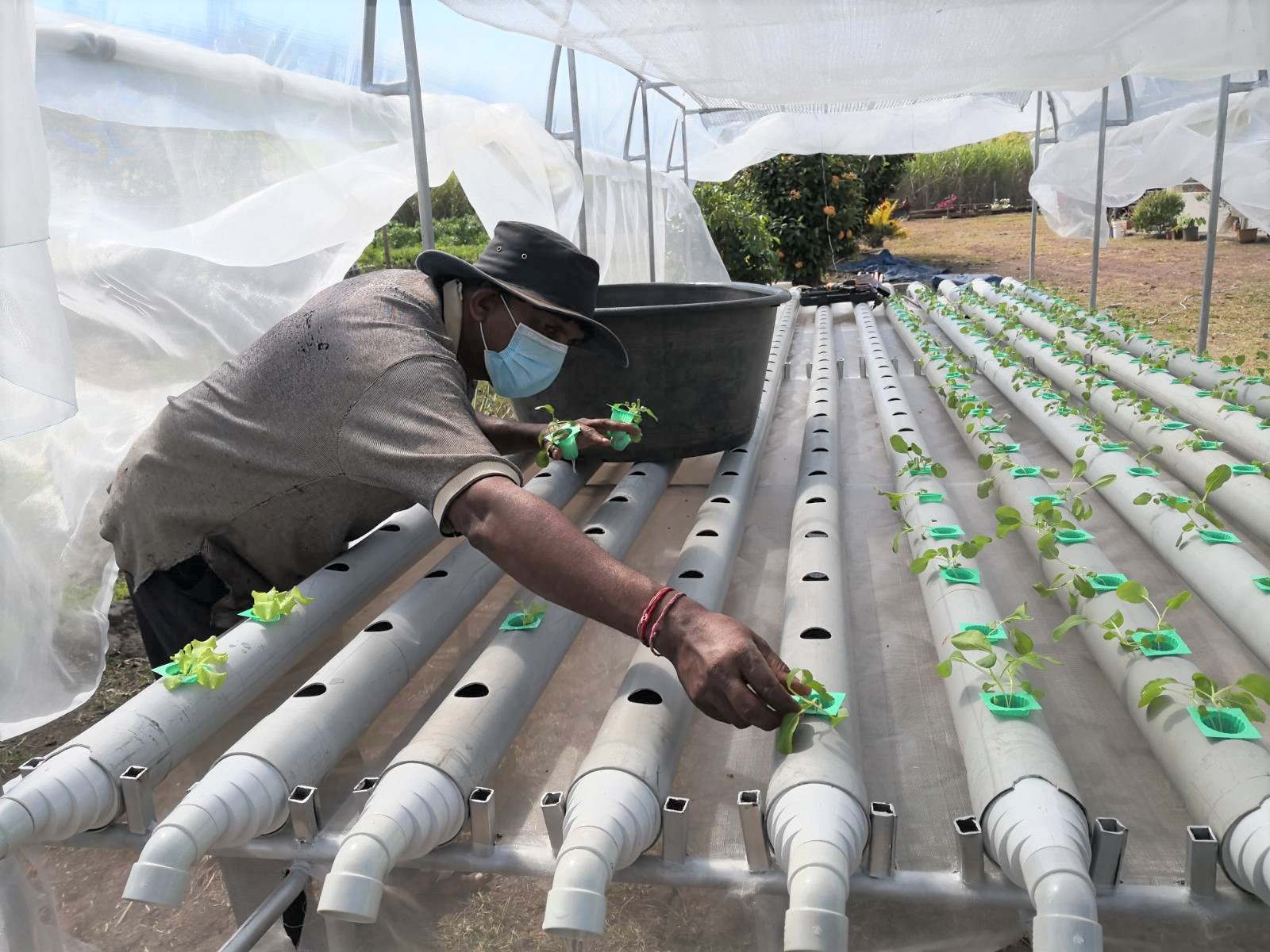Hydroponic farming for Amar

Picture: Amar Dass planting cabbage in his hydroponics system.
His dream of starting a hydroponic farm dated back to 2014 when he left work as a delivery driver for Courts Fiji Limited based at the Lautoka office.
48-year-old Amar Dass of Drasa, Lomolomo in Lautoka while working to feed his family never gave up on his farming dream and passion.
Resigning in 2014 allowed him to commit himself fully to his farm which had over the years developed from a backyard garden to a large scale vegetable farm.
Amar who grew up harvesting sugarcane married his wife Irene Devi in 1993 and later in 1995, the couple began with a backyard vegetable garden.
With the help of his wife Irene Devi, the couple managed to live their farming dream and support their family.
“My wife is from the Sigatoka Valley and she grew up growing vegetables and she taught me the ropes of crop and vegetable farming.
Years later, the couple expanded their backyard vegetable garden to a large scale operation, purchasing 40 acres of land in Lomolomo in 2007.
Half of their land is under sugarcane farming while 5 acres is designated for pineapple cultivation, another five acres for assorted vegetables and two acres is dedicated to his four tilapia ponds with rourou growing alongside them.
Experiencing the hardships of labour payments and time management, Amar found a new way to address this challenge by venturing into hydroponics farming.
His first hydroponic garden was a bamboo structured green-house, where he grew vegetables such as cabbage, green coral and butter lettuce.
“I found hydroponic farming more sustainable and something organic like bamboo is a natural idea for building structures that will help build a greener future,” he said.
Unfortunately, the bamboo hydroponic system was damaged by Tropical Cyclone Evan that hit Lautoka in 2018. This did not deter his farming spirit as he continued with his assorted vegetable farming and supplying to the Lautoka market, exporters and middlemen in the hotel industry.
“This year (2021) we were handed another set of new hydroponics equipment funded by Dialogue Fiji and we’re thankful to them,” he said.
“When you have the passion, despite whatever circumstance you face, things will eventually find their way to you,” he shared.
Apart from the farming skills he learnt over time and coupled with technical advice from the Ministry of Agriculture, Amar also utilises the internet to help him with his hydroponic farm.
“In a well-managed hydroponic system, production increases 3 to 10 times in the same amount of space compared to the ones grown on the ground,” he said.
“No weed or pest control is needed when operating a hydroponic system, it is chemical, pest and disease-free.”
“Labour is not a necessity as one person can handle all that is needed in the hydroponic system and in my case, I do everything, from checking the water to transplanting, right up to harvest time.”
Hydroponics, according to Amar decreases the time between harvest and consumption, which also increases the nutritional value and uptake for consumers.
Being an individual that started from scratch and who has survived the cruelty of natural disasters, Amar has advised families to start planting their own vegetables for their food security.
“If space is a problem, you can try hydroponics, what it produces can feed your family and if you have land cultivate it for food, make sacrifices and experiment on things, if things go wrong, you can still make it right next time.”
-Ends-
